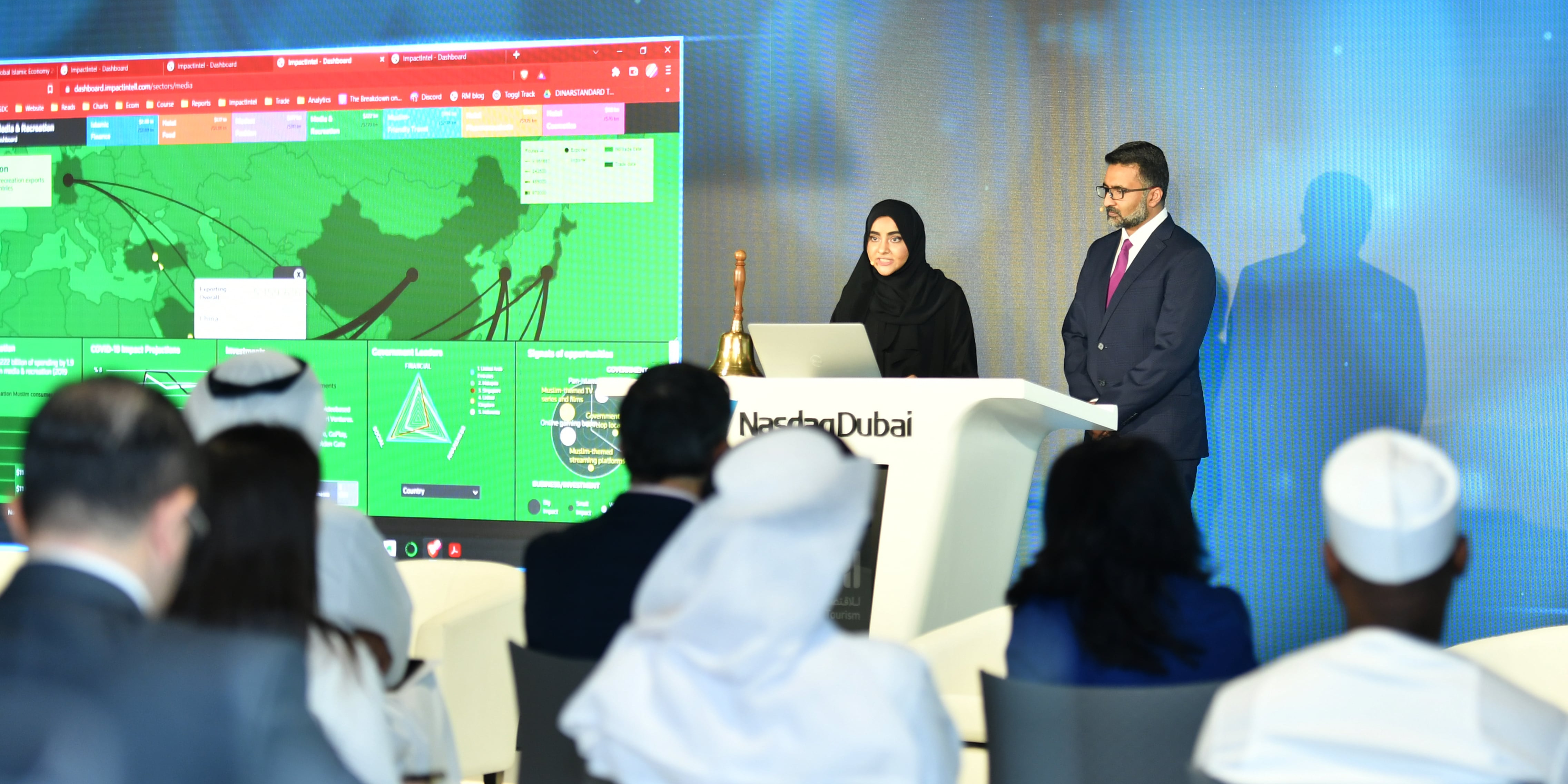State of the Global Islamic Economy 2022 Report launched in Dubai
The SGIE report estimates Muslims spent $2 trillion in 2021 across the food, pharmaceutical, cosmetics, fashion, travel and media/recreation sectors.
Dubai: Muslims worldwide spent $2 trillion (AED 7.3 trillion) in 2021 across the food, pharmaceutical and lifestyle sectors that are impacted by Islamic faith-inspired ethical consumption needs, says the State of the Global Islamic Economy Report (SGIE) 2022 launched by the Department of Economy and Tourism (DET) in Dubai with the theme ‘Unlocking Opportunity.’
The ninth edition of the SGIE report, launched alongside the bell ringing ceremony at Nasdaq Dubai today, estimates global spending in Islamic Economy sectors to have achieved a healthy 8.9% growth in 2021, and forecasts it to reach $2.8 trillion (AED 10.3 trillion) by 2025 at a cumulative annual growth rate (CAGR) of 7.5%.
Produced by DinarStandard, a US-based research and advisory firm, the SGIE report presents an annual update on the continued growth of the global Islamic economy, encompassing halal products, Islamic finance and related lifestyle sectors.
The report’s national benchmarking Global Islamic Economy Indicator’s methodology was updated for the first time in eight years. It ranks the UAE among the top three countries for the third consecutive year. The ranking, comprising 81 countries, continued to be led by Malaysia, Saudi Arabia, the UAE, and Indonesia, with Turkey making the biggest jump from 12th to 5th position. Within the sub-sector index, the UAE tops in the modest fashion sector ranking.
According to the report, Islamic finance assets worldwide are estimated to have reached $3.6 trillion (AED 13.2 trillion) in 2022. Investments in Islamic economy-relevant companies increased by 118% in 2020/21 to $25.7 billion (AED 94.3 billion) from $11.8 billion (AED 43.3 billion) in 2019/20. About 66.4%of the total investments in Islamic economy-relevant companies were covered by Islamic finance transactions, followed by 23.6% in halal products (food, pharmaceuticals, cosmetics, fashion) and 10% in Islamic lifestyle (travel and media). The figures include corporate-led mergers and acquisitions, venture capital investments in tech start-ups, and private equity investments.
Import of halal-related products by the OIC member countries fell sharply by 6.5% from $299 billion (AED 1.10 trillion) the previous year to $279 billion (AED 1.02 trillion) in 2020. Imports by OIC member countries represent a significant majority of halal products traded globally, that include food and beverage, fashion (apparel and footwear), pharmaceuticals, and cosmetics.
“The UAE’s consistent rank amongst the top three in the Global Islamic Economy Indicator is a key outcome of the country promoting the global Islamic economy trade and investments. For the first time since 2018/19, the UAE has moved up to the first position in the number of Islamic economy-relevant investment deals in 2020/21. It is also among the top 10 OIC exporters of halal-related products, with exports worth $7 billion (AED 25.7 billion) in 2020,” said Ali Ibrahim, Deputy Director General of DET.
Ibrahim added that Islamic economy is making significant headway despite the post-pandemic global economic challenges is an accomplishment for Dubai too as the emirate had proactively identified Islamic economy as a strategic priority.
“His Highness Sheikh Mohammed bin Rashid Al Maktoum, Vice President and Prime Minister of the UAE and Ruler of Dubai, launched the Dubai: Capital of Islamic Economy Strategy in 2013. Since then, the Strategy has remained a key driver of economic diversification, trade and investments in Dubai, and across the UAE,” said Ibrahim.
Rafi-uddin Shikoh, Managing Partner of DinarStandard, said: “This year’s SGIE report highlights some of the emerging global issues and its impact on the Islamic economy. It’s clear that the Islamic economies are recovering fast from the COVID-19 pandemic, with the various disruptions driving opportunities in digital acceleration and trade driven investments as ‘near shoring’ (sourcing products closer to home) and food/medicine security becomes national priorities. The report presents ‘signals of opportunities’ and recommendations for governments, investors and industry to navigate challenges and drive long-term prosperity.”
The SGIE report 2022 is distributed in partnership with SalaamGateway.com, the largest Islamic economy news and media platform. Global strategic partners of the report this year include halal certifier IFANCA, bank CIMB Islamic Bank, and the United Nations High Commissioner for Refugees (UNHCR).
The full State of the Global Islamic Economy Report 2022 is available for download at: salaamgateway.com/specialcoverage/sgie22
